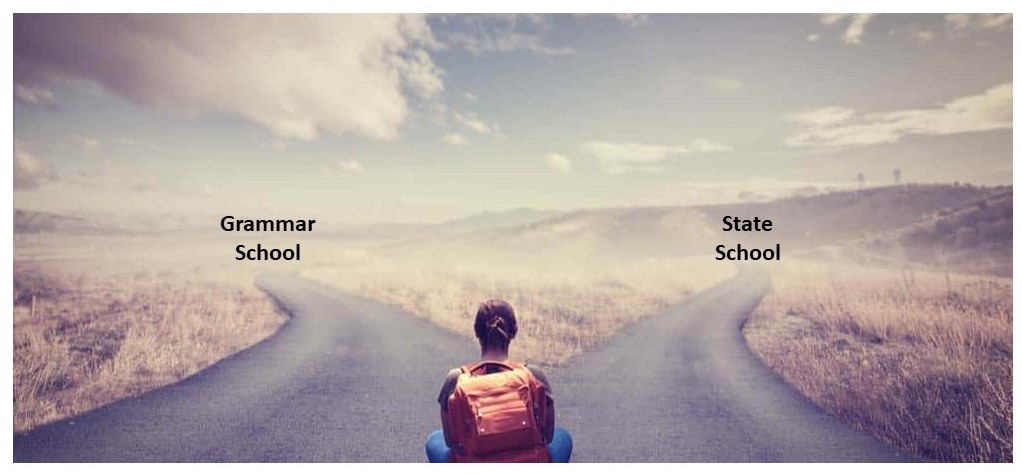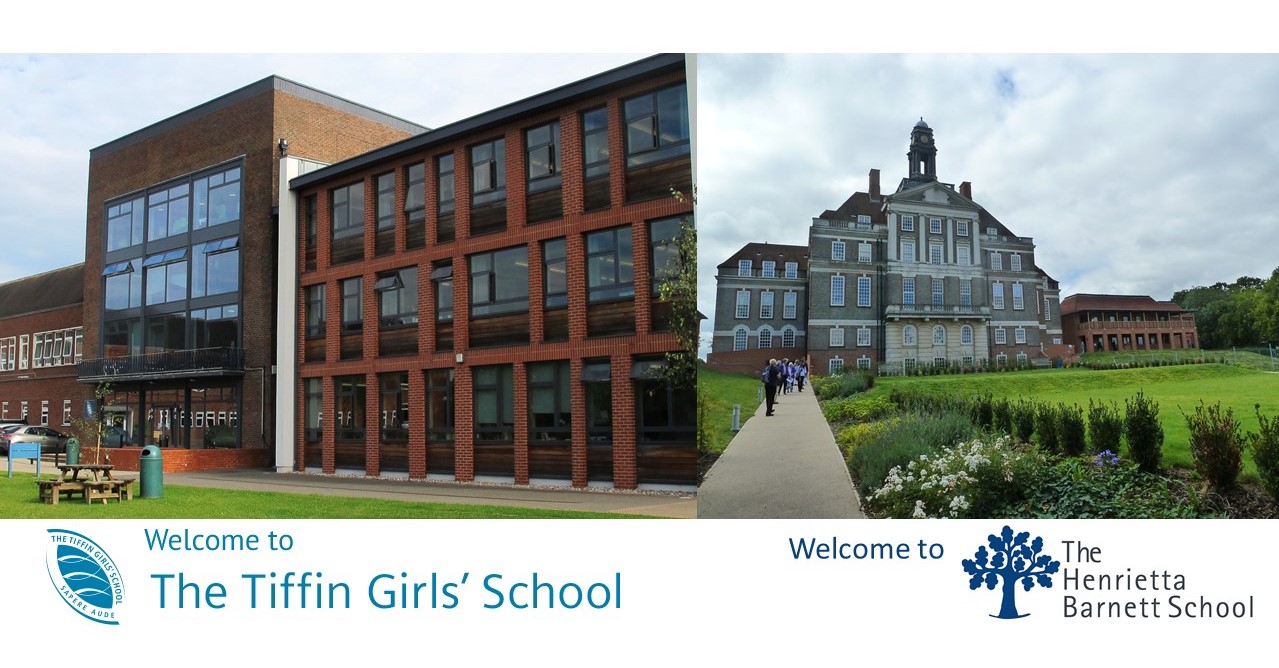

With BBC's current episode on the subject, it has re-framed the same big question to every parent and possibly every aspirant's mind. Who will make it?
As we witness, every child is different and possesses different skills. So when the entrance exams for the grammar schools tests their skills on the same subjects, how can each one of them show the similar competencies? Or all the grammar schools want to offer places to the students who are better in the competencies tested in the entrance examination only. Why other skills than those tested in assessment tests are being considered.
And if the tests are based on these competencies only, then the who will make it?
For understanding the process, we need to have some basic information on the subject.
1. What's the difference between state, grammar and private schools?
State schools
State schools can be divided into two categories: academies and maintained schools.
Academies are publicly funded, but independent - meaning they have more control over the curriculum and other aspects of the school.
They're held accountable for their performance through a funding agreement.
Meanwhile, maintained state schools are overseen by the local authority, and have to follow the national curriculum and stick to national pay and conditions for teachers.
Grammar schools
Grammar schools are also state-funded but they select their pupils using an entrance exam called the 11-plus.
The 11-plus exam usually involves sections on Maths, English, Verbal Reasoning and Non-Verbal Reasoning.
Private schools
Private schools charge fees to attend - which, according to research reported by the BBC, range from £13,194 to £30,369 on average per year.
The more expensive private schools tend to be boarding schools, with the fees covering living costs during term time.
Private school fees can be reduced through scholarships, based on academic talent or other abilities in sport or music - while some offer discounts for multiple siblings attending the school.
Similarly, like grammar schools, private schools can be selective, and often have an admissions test to choose their pupils
2. What abilities/skills do these selection tests measure?
Maths & English - Numeracy & Literacy skills tests
There is a strong emphasis on English and maths as core skills. For English, this will include grammar, punctuation, spelling, but particularly reading comprehension and vocabulary. For maths, this includes strong arithmetic skills and the ability to apply mathematical learning to problem-solving and data manipulation.
Numeracy Skills
We are all required to be numerate to maximise our potential and to make a positive contribution to society. In today's world, numeracy skills, in particular, the ability to interpret data, are becoming increasingly more significant and are hugely sought after by employers. An absence of mathematical confidence and poor numeracy skills are obstructions to employment as numeracy tests are increasingly becoming a routine part of the recruitment process.
Literacy Skills
Literacy is the ability to read, write, speak and listen in ways that will allow us to communicate effectively to a variety of different audiences and to make sense of the world. Reading and writing, when integrated with speaking, listening and viewing and critical thinking, constitutes valued aspects of literacy in modern life. Literacy is a critical component to ensure all students have the best chance to succeed in their studies and everyday life
Verbal Reasoning
The Verbal Reasoning test series measures a pupil's ability to engage with the language medium in order to identify their wider reasoning ability and potential. VR assessment highlights pupil's skills in verbal thinking above and beyond their formal literacy skills
Non Verbal Reasoning
Non Verbal Reasoning involves no reading, so can provide insight into the abilities of pupils who think more easily in images than words and those who have limited reading skills. It assesses the abilities of dyslexic pupils or others who are stronger at thinking via the visual medium, particularly as it involves no reading or aural comprehension and identifies the potential in all pupils as the assessment is word-free and non-culturally specific, and therefore not biased towards any social, cultural or linguistic group
Important Questions
But critics of grammar schools say they don't meet their aim of giving opportunities to brighter pupils, regardless of their background
-
As poorer kids' 11-plus results are undermined by other children whose parents pay for expensive tutoring.
-
As the student with other skills e.g.; art, theater, might not be able to perform better than the students with special interests in Math & English which are an integral part of any 11 plus exam
-
As the students whose parents have background and education to understand the subjects being tested will do better in these exams
Most of these exams which test the students in all four subjects expect a student to have some level of understanding of these skills and display these skills in time bound testing situation.
-
But what if the student has a natural interest in cooking/ culinary skills? Will he be able to perform better in these subjects? And what if the student is an athlete?
-
Do these exams cater the same opportunity to these different types of personalities according to their respective skills?
-
How can a student at the age of 10-11 understand the importance of these exams and work in time managed stressful situation to excel in these exams?
-
At least two of the subjects from these exams are unconventional to the national curriculum and thus are not been taught in the schools. How can we expect a student to display their strength in these areas where they have not been exposed to the subjects.?
-
Is there any preparation needed for these subjects?
-
Can the students be taught these skills and thus make them ready to compete for those 10-15% seats of the total number of aspirants?
-
There are subject experts in the market. Will students who take these services do better than the students who will study at home?
Some of the above concerns are right and can be answered assertively and some can be defended with a logic behind the inclusion of these subjects in 11 plus examinations.
The four skills which are tested in these exams are the comprehensive skills a student normally should possess and excels.
Verbal & Non Verbal Reasoning...why?
Such tests allow examination providers to assess children's visual acuity, the speed of perception, and ability to recognise and manipulate objects. This particular type of test is fairer than simply testing children's literacy and numeracy skills, since it bypasses language acquisition and mathematical ability, which are easier to acquire through extensive exposure and practice. As a means of testing, NVR provides a more level playing field for children sitting eleven plus examinations as a child's social background, facility with language, or ethnicity will not necessarily affect their ability in exercising this particular skillset.
However, although NVR is not necessarily a skill that can be taught in a conventional sense, children are able to hone and improve their skills in this area, through practice and familiarisation. Some children have more natural ability in this subject area, but all children will benefit from working at their NVR skills. Strong NVR skills help children see how patterns form and assist in developing their conceptual and imaginative ability. In NVR questions children are constantly faced with novel material and, to solve the problem, cannot draw on the more conventional knowledge they have previously learnt. Acquiring these kinds of visual reasoning skills is especially useful for geometry in maths, aspects of science, and computing. Many employers also use NVR testing as part of their recruitment process.
Even if NVR does not appear in the eleven plus examination or which your child is preparing, it may still be worth investing some time in practicing NVR tests. This is because acquiring superior NVR skills may indirectly improve children's literacy and numeracy skills. There are numerous NVR tests available online and these are always useful for practice and familiarisation purposes. However, if your child is sitting a standard NVR test in their eleven plus examination, it is best to prepare them by handling paper-based tests to ensure they have had sufficient practice in this style of testing.
Why Numeracy?
Rapidly growing technological advances are making the need for numeracy skills more critical within the workplace. With more employees engaging in more sophisticated tasks, numeracy is recognised as an essential employability skill.
Numeracy is defined as the ability to access, use and interpret and communicate mathematical information and ideas, in order to engage in and manage the mathematical demands of various situations in adult years. To be numerate is to confidently and effectively use mathematics to meet the everyday demands of life.
Numeracy is important for individuals to develop logical thinking and reasoning strategies in their everyday activities. We need numeracy to solve problems and make sense of numbers, time, patterns, and shapes for activities like cooking, reading receipts, reading instructions and even playing a sport.
Literacy and numeracy help people gain the fundamental skills necessary to achieve success in life. There is a huge national strategy to improve literacy and numeracy and to support students to live a satisfying and rewarding life as well as being an active participant as an active and well-informed resident. Literacy and numeracy skills are crucial for accessing the broader curriculum because they are used in many aspects of our lives. Workplace numeracy, literacy and employability skills are often used in conjunction with one another. These required skills often overlap and are necessary for any task.
Why Literacy?
Literacy has been defined in various ways over the years. Previously, being able to sign your name was considered a reasonable sign of literacy. Our understanding of what it means to be literate has altered and current definitions have taken into account the literacy demands of the society we live in. A more recent definition of literacy is the understanding, evaluating, using, and engaging with written texts to participate in society, to achieve personal goals and ambitions and to develop knowledge and potential.
These all four areas can assess different skills and different abilities of a student. Thus, the exam becomes effective if all these areas are asses comprehensively.
Can these skills be taught?
Yes! To a certain extent. Most of the exams have similar patterns of their questions. If sufficient time is available, then these question patterns can be taught to a student if a basic understanding of the subjects and interest to learn is present.
For some students who have these skills as their area of interest naturally, the learning and application is easier and they can attempt various formats of the exams.
Is training necessary for these subjects?
My answer to this will be yes with the current situation of the competition. As some subjects are unconventional and some have more span than being taught in the schools, a student will be benefited if he/she has the training on these concepts and more practice to master them.
As the competition is fierce. For some of the school, students compete for one seat among 20 aspirants. And this situation has made it almost compulsory for the students to get training (at home by parents, self or at tutors).
The age is a very tender age and as the students have not been exposed to many time-bound exam situations, it also becomes almost mandatory to learn these time management skills during exam situation.
There are other effects of the rigorous training if not done properly. And many students become a victim of the same. Only practice and question pattern style learning make student mechanical in their approach and understanding. These get reflected in their academic ability as they grow up.
If the students are taught concepts and their application in various ways, the students' ability to learn and apply enhances and they can score better even if different question pattern appear in the exam.
Reference
- Ryan Shorthouse - https://www.theguardian.com/commentisfree/2018/mar/28/grammar-schools-value-ditch-them-social-mobility-comprehensives
Attending grammar school may not boost chance of good GCSE grades, study suggests - Eleanor Busby Education Correspondent - https://www.independent.co.uk/news/education/education-news/grammar-schools-private-schools-gcse-exams-kings-college-london-kcl-a8269086.html
Grammar schools should be 'phased out' as they damage social mobility, says study - Eleanor Busby Education Correspondent - https://www.independent.co.uk/news/education/education-news/grammar-schools-gcse-exams-academic-selection-durham-university-social-mobility-a8275406.html
Grammar schools: What are they and why are they controversial? - Hannah Richardson -BBC News education reporter - http://www.bbc.co.uk/news/education-34538222

